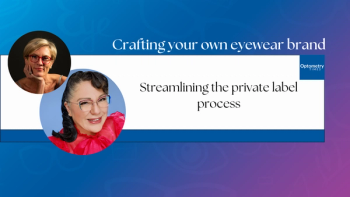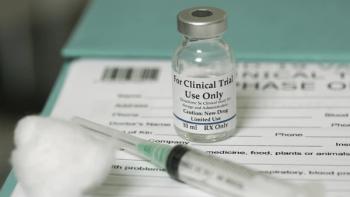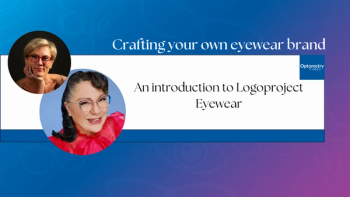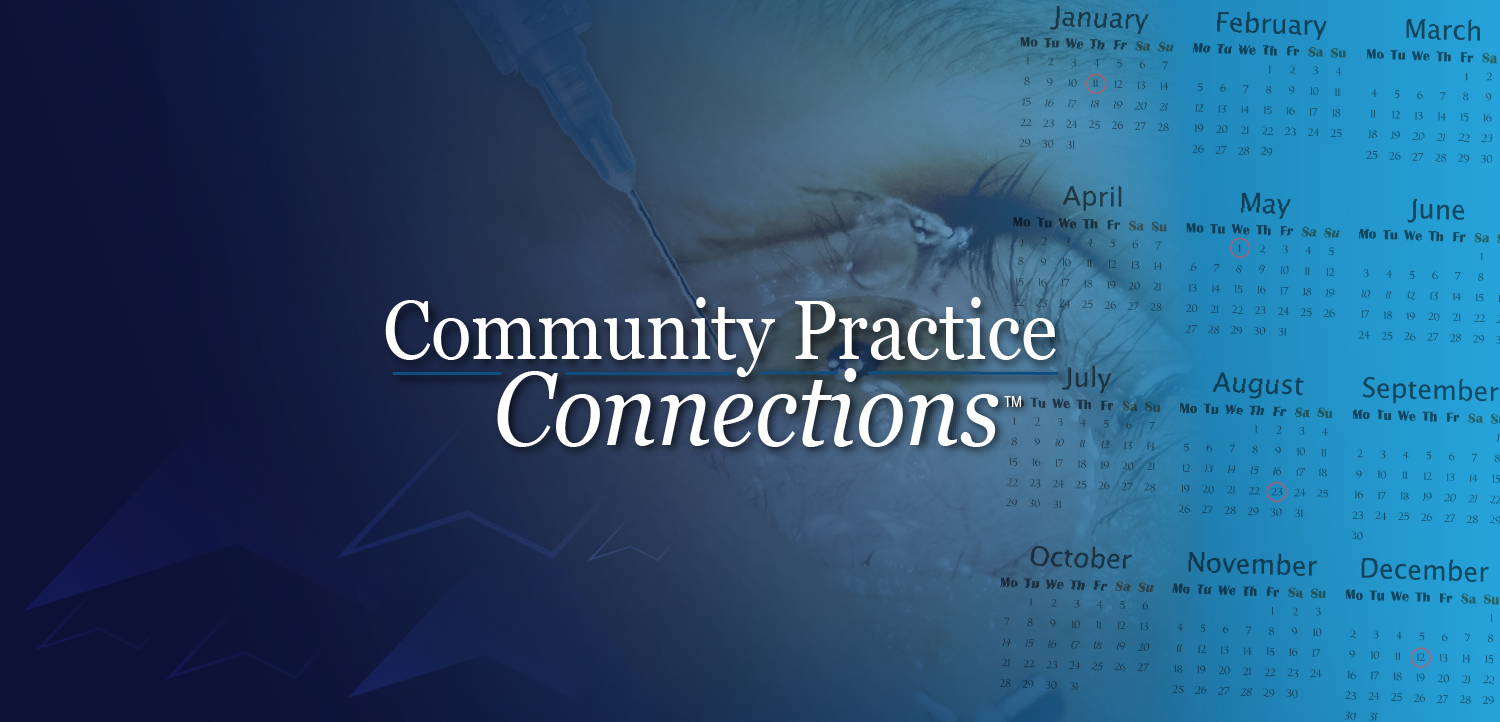
Shauna Thornhill, OD, Owner, Amarillo Vision Specialists
I was born in Colorado. I went to 17 schools kindergarten through twelfth grade. My dad was always searching for the perfect job, and he never really found it. Somehow we ended up in Amarillo, TX.
Where did you grow up?
I was born in Colorado. I went to 17 schools kindergarten through twelfth grade. My dad was always searching for the perfect job, and he never really found it. Somehow we ended up in Amarillo, TX. We got here my sophomore year of high school and stayed here my sophomore, junior, and senior years, which is the longest I had ever been anywhere. My mom was a stay-at-home mom for most of my life. When we got to Amarillo, she became a cashier at Walmart and she’s been with Walmart for 24 years. She’s the personnel manager at one the stores I have a lease at. Yeah, full circle, huh?
How did you decide on optometry?
I was the math and science nerd at school, I think most optometrists probably were, and I started working for Walmart in the vision center right after high school to help pay for college. Sort got interested in the eyes, and there was a really nice doctor who was next door, who funnily enough works for me now [laughs] and so just got me interested in eyes. I did the whole rounds with dentistry, and I worked for an oncologist for a while in college. The eyes were really cool to me so that’s really what led me that way.
Why contact lenses?
I think contact lenses are fascinating. I’ve also got a minor in chemistry, and I think the chemistry behind it is really, really interesting. I remember taking a tour one time of one the contact lens facilities and I got to meet one of the chemists who created one of the lenses. Besides that, I think patients get such a feel-good boost when they wear contact lenses as opposed to glasses.
What’s something your colleagues don’t know about you?
Not many people know I went to 17 schools because when asked I say I’m from Amarillo, TX.
Was there a culture shock going from the Texas Panhandle to study in Philadelphia?
For me, not too bad because I had moved around so much, although that was my first East Coast experience. But my husband was born and raised in the Panhandle of Texas, so that was huge culture shock for him. I loved Philly-I thought the people were wonderful, genuine, great people. They’re different from down here, but wonderful people. I loved my experience there.
Why did you leave your dream practice for a WalmartPractice?
I did things backward from most optometrists. Most people use corporate optometry as a stepping stone to get their own practice. I started out at this multi-million, multi-doctor really luxury practice, and I liked it. But it wasn’t filling my heart with what I felt was calling me, and that was to volunteer. The Walmart where I am now is at the heart of the community where I went to high school. It’s very impoverished-over 80 percent of the kids at the high school I went to are on the free lunch program. I felt I could make more of an impact on patients’ lives, not only in the eye world but in other ways, too. I love it. I always tell Walmart management I hope they let me retire here because I’ve found where I fit in. [Laughs] I’ve got leases at two Walmarts, and the first one I got was the one where my mom works. It sure is fun to go to lunch with my mom when I can.
How does starting a Walmartpractice differ from starting one in an office park?
I think the biggest advantage of being in a Walmart is that when you walk in, almost everything’s ready-your equipment is there, your patient base is there. I bet I have a thousand people walk past my sign every single day. I have tons of student loans; I certainly didn’t have that big nest egg to start my own practice. Walmart supplies all the equipment. You lease out the space and pay Walmart rent. It’s a phenomenal rent. I couldn’t go down the street and buy the same size place or even rent it at a strip mall and pay that amount of money.
How did the “Free Eye Exam/Toy Drive Day” come together?
This community is very socioeconomically challenged. Lots of my patients can’t get eye exams. Families would scrape all the cash they could to pay for mom’s eye exam, but the rest of the family was missing an eye exam. So I came up with the free eye exam day, and I wanted to take it a step further. I said, “Could we ask them to buy a toy to help out another group?” And that’s how the idea started. My dad was a Marine, so Toys for Tots had been familiar to me. Then I got to thinking how we could partner with Walmart and make it even better. So I approached the managers of the two stores and asked if people brought in a toy for a free eye exam would they match the donations. They said absolutely. Every year, it’s gotten bigger and bigger. It’s turning into this huge community event. We are so proud of it.
Did that drive open up other community and professional opportunities?
The news and radio stations had heard about it and picked up the story. I’m involved with Leadership Amarillo, a leadership group in our town for networking and discussing community needs. They are such a great resource; a bunch of them helped out with the toy drive. It’s opened up so many cool things.
What started your interest in optometry leadership?
I’m always excited to do something more and better and take it to another level. I think I gravitate toward those positions. I’m sure my husband would wish I’d stop sometimes. [Laughs] I like to be part of the solution, not the problem. The owner of the dream practice where I worked was president of the Texas Optometric Association at one point, and I learned a lot from him. I’ve never thought that far. Politics, I don’t know. I wouldn’t turn it down, but I’m not going to say I’m ready for that quite yet.
What are the challenges facing corporate optometrists?
I think that corporate optometrists are the afterthought in optometry. I still get lots of patients saying, “Now, are you a real doctor?” They don’t know, but I’m just as trained as every other optometrist. One of the biggest concerns we face is the public perception of us. That’s something we need to work on, and that’s why I think Energeyes is such a great organization. I’m one of the charter members. I was so excited when it came about because you can get a network of corporate ODs together talking about these challenges and trying to come up with solutions.
How do you and your husband keep a work/life balance?
We enjoy the simple things, I got to say. We have two children, a five-year-old and two-year-old. Just hanging out with them is perfect-doing homework and baths and all the normal family life. We like to go to the movies and out to eat. There’s not a whole lot to do in Amarillo, Texas, I’ll be honest. [Laughs]
What’s one thing you would change about optometry as it stands now?
I wish we weren’t as state regulated. Our training goes a lot beyond the scope that my state allows me to do. MDs don’t face that. We have a lot of limitations on pharmaceuticals, certain pharmaceuticals we’re allowed to write for only a certain amount of days. It is hard to treat your patients the way they need to be treated if you can write an antibiotic for only X number of days. That’s the big one. We’re not allowed to do anything with lasers, injectables, which some states are starting to acquire. We are taught in schools how to do those but again can’t because I’m in Texas.
What is the craziest thing you ever did?
My husband would say buying a pair of $2,000 Manolo Blahnik shoes. [Laughs] He always says that’s the craziest thing I ever did, but I think those shoes are priceless. A better question for me would be: What kind of crazy things do you make other people do? I find myself asking people to do crazy things for me and they do it. [Laughs] I had just heard a speech on poverty here in town and the high number of girls who do not attend school the week of their period because they don’t have pads and tampons. For our Christmas party, I made the staff bring boxes of pads and tampons before they could come in the door. We ended up getting tons, and they were all great sports, even the gentlemen. We donated them all.
Newsletter
Want more insights like this? Subscribe to Optometry Times and get clinical pearls and practice tips delivered straight to your inbox.















































.png)


